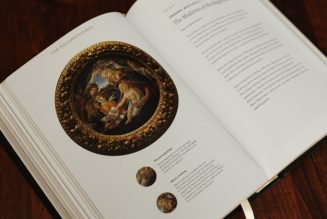Prince Harry and Meghan Markle. Shutterstock.com
The main headline blazed out on the cover of one of those magazines grocery stores set out where you’d see it while waiting in line. It asked where Meghan Markle had gone. A subhead told the world that Harry was out partying. The editors wanted people to infer a scandal and buy the magazine to read about it.
I have no interest in the English royal family, and think the doe-eyed interest so many Americans have in it a little weird and sad — my wife, for instance, and it baffles me. But the Harry and Meghan vs. Royal Family battle tells us something about what we can know and who we ought to admire.
Some people side with Harry and Meghan, others with the Queen and the rest of the royal family. Most people who care seem to be sure they know the truth, which almost all take to be almost fully on one side or the other. A few people say they don’t know or try the “faults on both sides” or “mutual misunderstandings” lines, but I haven’t seen this often, and certainly few from the press or on Facebook.
But how would you — a TV watcher and web news reader who has no more contact with the English royal family than with Martians — know the real story? It all happens far, far behind the monarchy’s public face and behind layers of public relations people, media committed to one or the other message, other media calculating what is the position that will do them the most good, “influencers” and friends choosing a side for personal reasons, and people claiming to know the real story and the inside scoop when they don’t.
People speak of “the fog of war,” but the fog of celebrity is just as thick. A good test of what you know is what you would believe if you read the story in a history book or a novel. In this case, almost any story not involving aliens or magic would be perfectly plausible.
A cold, calculating, racist royal family stuck with an American person of color 1) trying to make the best of it and failing, because rich, royal and racist, or 2) trying to control her in order to use her to modernize its image — that would be plausible. An ambitious, calculating American starlet seeing the chance to make herself famous and rich and adored, and when blocked, making up stories about the royal family in order to make herself famous and rich and adored — that would be plausible. A very mixed combination of both — that would be plausible, too.
We don’t know enough about such people to admire them the way so many people do. Almost everyone once believed that Bill Cosby was “America’s dad.” He was the popular media’s go-to guy for wisdom about life, especially family life. And then the world found out about his personal version of family values.
Any number of once-admired celebrities have been exposed as sex predators or abusers. Goofy comedian Jerry Lewis, for one. Movie producers. Well-respected politicians. And among Christians: Celebrity priests. Popular pastors. Laypeople with lots of followers.
The problem isn’t just that admiring celebrities means admiring images created by people with no interest in the truth. Christians should not admire myths. The bigger problem is that admiring celebrities means not admiring people we should admire. And imitate. We have only so much mental space for these things. Why fill it with contrived stories about people you don’t know and whose life will never affect yours?
Why do we follow them? Because they’re famous, and often rich, and sometimes royal. Christians, as St. John Henry Newman wrote, “are called upon to think little of the ordinary objects which men pursue — wealth, luxury, distinction, popularity and power.” The early Christians thought “the goods of this world” to be “vanities, the toys of children, which serious men let drop.”
We should admire people who lay up treasures in heaven. They’re rarely famous, nor rich, nor royal. We have to look carefully to see them. “The Christian has a deep, silent, hidden peace, which the world sees not,” Newman said in the quote Pope Francis chose for his homily at Newman’s canonization. “The Christian is cheerful, easy, kind, gentle, courteous, candid, unassuming; has no pretense … with so little that is unusual or striking in his bearing, that he may easily be taken at first sight for an ordinary man.”
Make heroes and models of good people you know. They probably won’t even be local celebrities. They’ll look too ordinary for that. But they’ll be images of holiness and pointers to Christ in a way the celebrities will never be. You want help in being a better Christian? Look at them.
David Mills writes from Pennsylvania.
Join Our Telegram Group : Salvation & Prosperity











